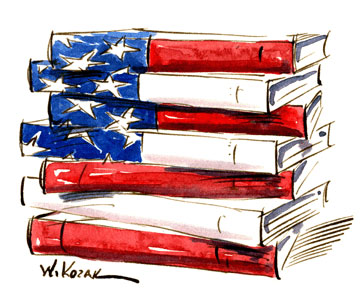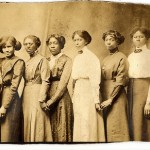John Adams. Thomas Jefferson. Benjamin Franklin. The most revered Founding Fathers shared a significant commonality: they were intellectuals. Define the term as you please, but as long “informed and curious” are included in that characterization, I will offer no disagreement. In spite of powerful rebranding attempts, these individuals modeled the advancement of mankind’s intelligence and self-awareness. They were The Curious, and they stood for the principles of lifelong learning.
As I absorb constant headlines delineating the battle over education, and particularly its funding, I often wonder how we got here. How is creating and maintaining the best education system in the world even negotiable? The answer is complex, and cannot be outlined in a any singular blog – or even a series of novels. However, what is most concerning is that some of those who are dividing the pie – and thus assigning value to what educators do – have a shifting view of education and learning.
Behind the red ink of the state ledger lurks a far more ominous force: the belief that to be highly educated is not worth seeking, nor should it be revered in others. To become “intelligent” makes a person part of a disconnected intellectual elite. And, somehow, during the course of our political and cultural discourse, to become learned also implied a burgeoning disengagement from some sort of defined American value system. In this fantasy, the further one moves along the the theoretical Learning Axis, the further he or she moves away on the perpendicular American Axis. Somehow, our politics have negatively impacted our perception of learning and its value to our great society.
At the core, is a battle for funding our country’s move closer to the thriving and learned spirit of the Curious – our real Founding Fathers. However, some see it as financing an increasing move from what they represented. Who can decide what to pay, when we don’t seem to understand what that knowledge is worth?
The Founding Fathers believed that their perceptions were not infallible. They were best represented by students and answer-seekers. They were men who had achieved by knowing there was more to achieve and more to know. They were restless in their urge to learn, think, debate, become better Americans and, in turn, better people.
Learning is neither left nor right, and the waves of our collective intellect ring in the thoughts of both Buckley and Vidal. They are the echoes of our Founders.
Can we continue to hear their voices, or will they forever be drowned out by the clang and clamor of the Damnation of Intellectualism?









